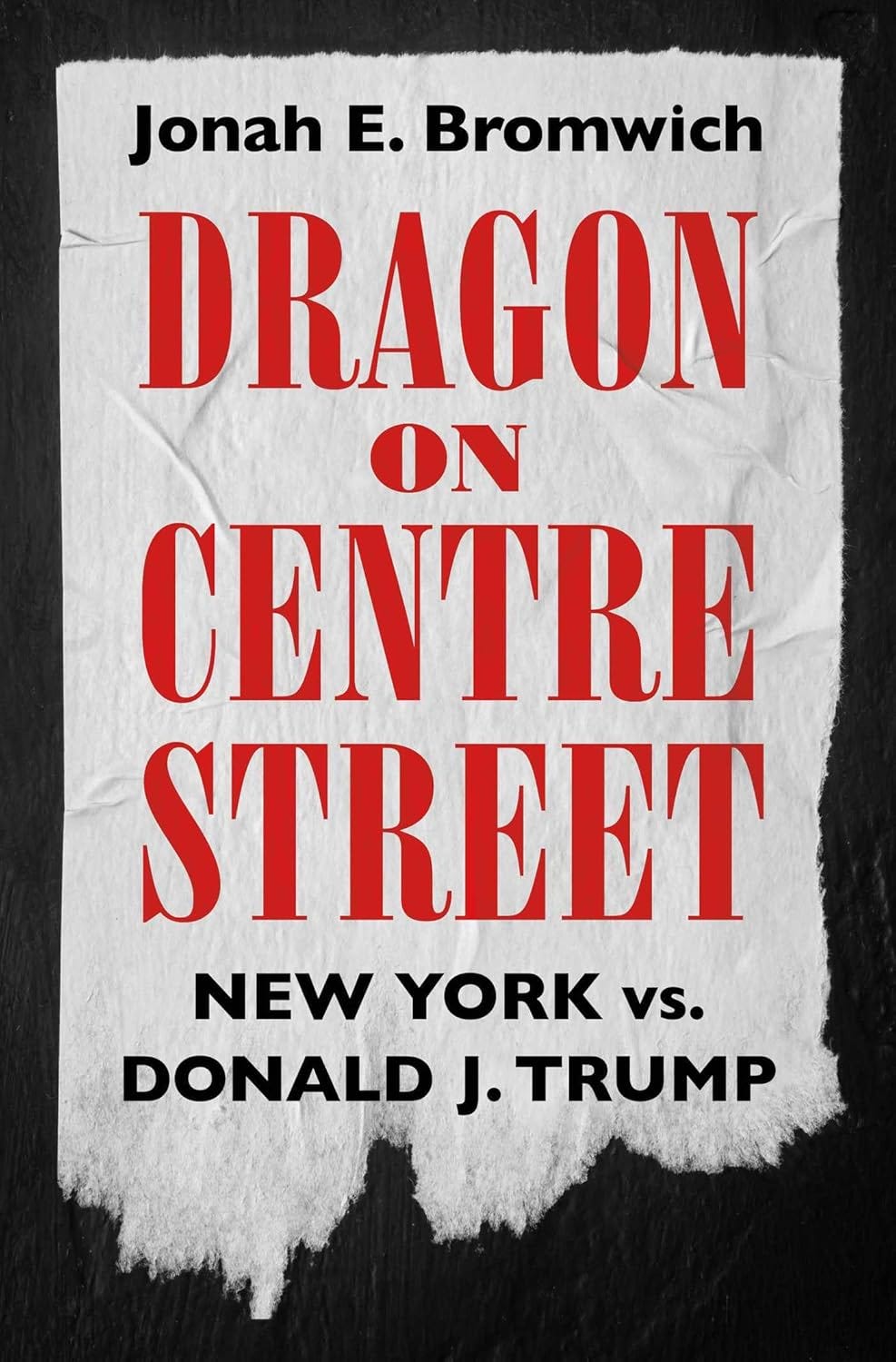Mastering the Room wrapped its latest season, but the conversations continue. I’m still talking every day with people who have fascinating stories to share about these political times, so I’ll be hosting these discussions semi-regularly as Crash Discourse.
This week, I sat down with Jonah Bromwich, New York Times courtroom reporter and author of the new book Dragon on Centre Street: New York vs. Donald J. Trump. If you want a behind-the-scenes look at the circus, and to understand what actually happened in the most consequential criminal trial in American history, this is the book for you.
We heard about the trial nonstop. We fought about it on social media. We argued over its legitimacy at dinner tables. But ask most people what actually happened in Donald Trump's criminal trial in New York—the first-ever criminal conviction of a U.S. president—and you'll mostly get blank stares, half-remembered headlines, or vague mutterings about Stormy Daniels.
Jonah was inside that Manhattan courtroom every single day of the seven-week spectacle. His book is the definitive insider account of how it all went down—and why the real story is so much bigger than what made the headlines.
Main takeaways from our conversation:
It was much bigger than hush money.
Trump's conviction wasn't simply about paying off Stormy Daniels. It was about an alleged conspiracy between Trump, Michael Cohen, and David Pecker starting in August 2015 to bury damaging stories and influence the 2016 election—a scheme that prosecutors said broke both New York state law and falsified business record statutes.Inside the courtroom was very different from outside.
In the courtroom, the jury was riveted, the evidence largely uncontested, and the prosecution delivered a coherent case. But outside? Trump's team waged a full-scale media war to delegitimize the trial, controlling the public narrative far more effectively than they controlled the jury room.Trump turned the courtroom into a Republican audition stage.
When his gag order stopped Trump from attacking witnesses, he brought GOP politicians to do it for him. JD Vance's courthouse performance was essentially his VP tryout.The defense chose politics over law.
Instead of focusing on the weakest evidence (Trump's direct involvement in falsifying business records), they denied everything—even obvious relationships with Cohen and Pecker. This helped Trump politically but doomed them legally.The legal theory was novel—and heavily debated.
This particular combination of falsifying business records + state election law had never been tested in court before. Judges at both the state and federal level allowed it to proceed, but as Jonah notes, the legal community debated its legitimacy even as the trial unfolded.Why didn't this land harder politically?
Despite the historic conviction, Trump's support has remained remarkably durable. Jonah argues this trial is emblematic of something much bigger: the widening gap between our legal institutions and our political tribalism. Even hard facts now get filtered through partisan lenses.A warning shot for the rule of law.
Beyond Trump himself, Jonah sees this trial as a cultural marker: a reflection of our collective loss of faith in legal institutions, due not just to Trump's attacks but to years of rising public distrust in authority.
If you want an entertaining, jargon-free explanation of one of the most important legal moments in modern American politics—and why its full impact may not be felt for years—don't miss this conversation and Jonah's new book Dragon on Centre Street.
Listen to the full episode now.












